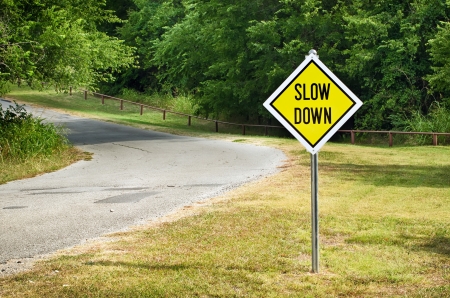
I spent some time this week reflecting on how an injury two years ago forced me to slow down and reflect on my own communication habits.
I’m an avid hiker and spend most of my spare time hiking the hills of Hong Kong’s less known green areas. Its my way of unwinding and allows me to keep focused on my work. So in the spring of 2013 when my regular weekly hike ended with a broken ankle and a cast on my leg I wasn’t sure how I was going to be able to handle the physical challenges as well as the mental challenges of not being able to get out and hike.
I had always thrived on a full schedule of exercising daily and running my own business as a leadership communications coach. Once I was forced to slow down I realized just how hurried much of my life, and my communication, had become.
Having a cast on my leg and using crutches meant that my usual habit of trying to accomplish as much as I could, in as short a time as possible, was, well – no longer possible.
I remember clearly noticing a change in myself. A change that came about as I gradually settled into a new routine, a routine that could no longer include my daily workout or dashing out to meetings. I started to get into a different pace of life.
This new pace allowed me to the time to reflect on my own communication habits. The realization that much of my phone, email and even face –to- face communication had become a blur of activity brought home the value of slowing down.
This new pace allowed me to the time to reflect on my own communication habits.
Brain Smart tips
The brain is wired to look for threats and hurried communication that is badly planned, unclear or inappropriate can create a threat response in our receiver’s brains. This in turn can lead to everything from lower productivity to breakdowns in relationships. It also applies regardless of which method of communication you use. But the most common form of hurried communication I see is email. Here are 5 Brain Smart tips for using email wisely.
1. Respond to emails regularly.
How often do you get busy and leave something to drop to the bottom of your inbox and then get overshadowed by new incoming messages that seem more urgent. Before you know it a week has gone by and you haven’t responded to a request. Set aside time each day to respond to emails that require a response. People appreciate timely communication and are more likely to build a positive connection in their brains around their relationship with you.
2. Read and respond to emails appropriately.
So often I receive email responses from people who have obviously not read the original message properly and miss pieces of information. Read and respond to what is there. Missing information creates uncertainty for the reader. Uncertainty is one of the biggest threats to the brain.
3. Consider the impact of the tone of your email on the reader.
Tone is vital, research shows that over 60% of emails in the workplace are misunderstood at the best of times, so firing out an email without considering tone or when you are angry, frustrated or feeling hurried is going to add to the risk of miscommunication or triggering a threat response in your reader.
4. Pick up the phone.
Email, text messages, skype messages and any other form of instant communication are great and we couldn’t live without them. But, sometimes it’s better to speak directly to someone. It can save time, build connection with people and clarify a situation more effectively.
5. Keep in touch.
I’m not talking about sending out jokes, self- promotions or anything else your reader may not want. But, did you say you were going to send someone something? Did you say you would check some details and get back to someone? Did you meet someone and promise to keep in touch and see how things are going? These things get so easily pushed to the bottom of a busy person’s pile. Take a moment each day to communicate what you said you would.
I’m happy to report that my ankle is now healed and I’m once again able to get out for my weekly hikes. I also try to remember the valuable lessons I learned about my communications habits from having to slow down.
I’m not suggesting that you injure yourself to follow these tips, but slowing down and taking a few extra minutes a day to focus on communicating well will help you work more effectively and build better relationships.
What do you notice about the communication habits of those around you? How would people benefit from slowing down?
